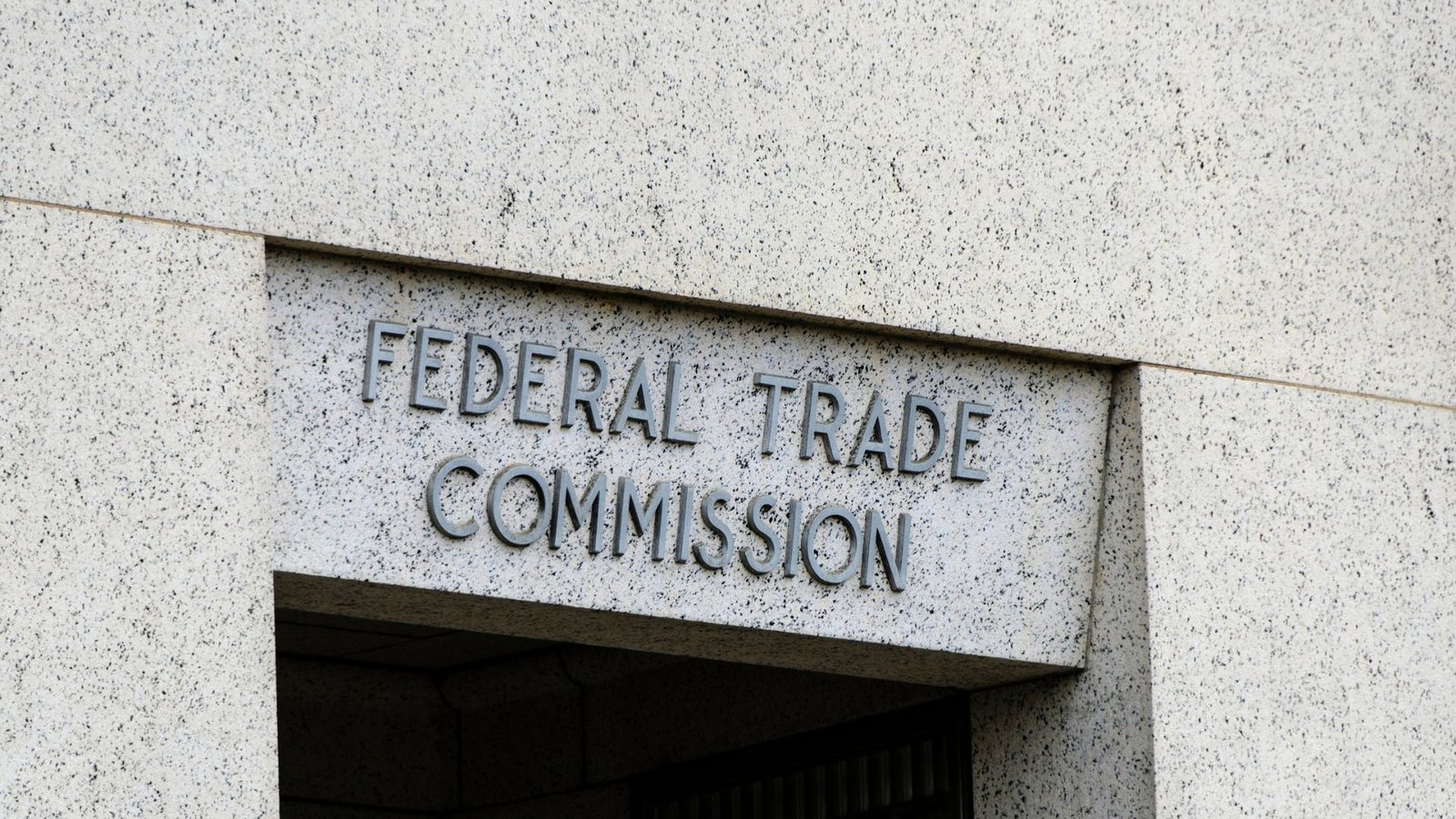On this page you will read detailed information about Federal Trade Commission Act.
As a consumer or business owner in the United States, you may have heard of the Federal Trade Commission Act but wonder about its significance. This landmark legislation, enacted in 1914, established the Federal Trade Commission and laid the groundwork for consumer protection and fair competition in the marketplace. Understanding the Act’s key provisions and enforcement mechanisms is crucial for navigating today’s complex business landscape. In this article, you’ll gain insight into how the FTC Act impacts your rights as a consumer and your responsibilities as a business owner. Discover how this pivotal law continues to shape commerce and safeguard economic interests over a century after its inception.
What is the Federal Trade Commission Act?
The Federal Trade Commission (FTC) was established in 1914 by the Federal Trade Commission Act, a landmark piece of legislation. This act, signed into law by President Woodrow Wilson, was designed to protect consumers, investors, and businesses from anti-competitive practices such as monopolies, price-fixing, and fraudulent advertising.
Purpose and Scope
In the US, fair competition and consumer protection are anchored by the Federal Trade Commission Act. Its primary objectives are to:
- Prevent unfair methods of competition in commerce
- Defend customers against unfair or misleading company practices.
- Promote a vibrant, competitive marketplace
According to the FTC’s official website, the act grants the agency broad investigative, law enforcement, and rulemaking authority to fulfill these objectives.
Key Provisions
The Federal Trade Commission Act empowers the FTC with several important tools:
- Investigative Powers: The FTC can investigate the organization, business conduct, and practices of entities engaged in commerce.
- Enforcement Authority: The agency can initiate administrative proceedings and issue cease and desist orders against violators.
- Rulemaking Capacity: The FTC can create rules to address common unfair or deceptive practices.
Through these provisions, the Federal Trade Commission Act continues to play a crucial role in safeguarding the interests of consumers and maintaining fair competition in the American economy.
Important Federal Trade Commission Act Sections
The Federal Trade Commission Act contains several crucial components that empower the FTC to protect consumers and promote fair competition. Understanding these key sections is essential for businesses and consumers alike.
Prohibition of Unfair Practices
Businesses are prohibited from engaging in “unfair methods of competition” and “unfair or deceptive acts or practices” under Section 5 of the Federal Trade Commission Act. Because of its expansive mandate, the FTC is able to combat a variety of detrimental and anti-competitive business activities.
Investigative Powers
Under the Act, the FTC is empowered to conduct extensive investigations, including issuing subpoenas and civil investigative demands. These tools enable the Commission to gather information about potential violations and ensure compliance with consumer protection laws.
Enforcement Mechanisms
The FTC can initiate administrative proceedings or seek injunctive relief in federal court to enforce the Act. Civil penalties, consumer remedies, and cease and desist orders are all possible outcomes of violations. This robust enforcement framework helps deter unfair practices and protect consumers from harm.
Rulemaking Authority
The Federal Trade Commission Act empowers the FTC to prescribe rules defining and preventing unfair or deceptive practices. This rulemaking authority allows the Commission to adapt to evolving market conditions and address emerging consumer protection concerns proactively.
Enforcement of the Federal Trade Commission Act
The Federal Trade Commission Act gives the FTC extensive power to safeguard consumers and uphold fair competition in the market. This Act gives the FTC the authority to stop unfair competitive tactics and dishonest business activities.
Investigative Powers
The FTC possesses extensive investigative tools to uncover potential violations. These include the ability to issue subpoenas, civil investigative demands, and orders for special reports. Such powers allow the agency to thoroughly examine business practices across various industries.
Enforcement Actions
When violations are identified, the FTC can take action through:
- Administrative proceedings
- Seeking injunctive relief in federal court
In administrative cases, the FTC may issue cease and desist orders. If these orders are broken, civil penalties could be applied. In federal court, the agency may also seek civil penalties and consumer restitution for violations of its orders or trade control regulations.
Rulemaking Authority
To address common unfair or deceptive practices, the FTC has the power to establish trade regulation rules. These rules can be enforced through civil penalties and consumer redress actions, providing a proactive approach to consumer protection.
By leveraging these enforcement mechanisms, the Federal Trade Commission Act serves as a powerful tool in safeguarding consumer interests and promoting fair competition across the American marketplace.
In the previous post, we had shared information about Understanding the Electronic Communications Privacy Act, so read that post also.
The Consequences of Breaking the Federal Trade Commission Act
Civil Penalties and Fines
Violations of the Federal Trade Commission Act can result in severe financial consequences for businesses. The FTC has the authority to impose substantial civil penalties for infractions, which serve as a powerful deterrent against unfair or deceptive practices. As of January 11, 2023, the maximum civil penalty amount increased to $50,120 per violation for certain breaches of the Federal Trade Commission Act.
Enforcement Mechanisms
The FTC employs various enforcement mechanisms to penalize violators. One such tool is the Penalty Offense Authority, which allows the Commission to seek civil penalties against companies engaging in practices previously determined to violate the Federal Trade Commission Act. Through this authority, the FTC issues “Notices of Penalty Offenses” to businesses, detailing specific conduct found to be unfair or deceptive in past administrative orders.
Additional Consequences
Beyond monetary penalties, violators may face other serious repercussions. To resolve infractions, the FTC may file a complaint in federal court for consumer restitution and injunctions. Moreover, the Commission’s rulemaking authority enables it to define unfair or deceptive acts, violations of which can lead to further penalties. These multifaceted enforcement capabilities ensure that the Federal Trade Commission Act remains a robust shield against consumer harm and unfair business practices.
How Customers Are Protected by the Federal Trade Commission Act
Preventing Unfair and Deceptive Practices
The Federal Trade Commission Act empowers the FTC to safeguard consumers from unfair or deceptive business practices. Under this Act, the FTC can investigate and take action against companies that engage in fraudulent activities, make false claims, or employ unfair methods of competition. This broad authority allows the agency to adapt to evolving marketplace challenges and protect consumers across various industries.
Enforcing Consumer Protection Laws
The FTC enforces a wide range of consumer protection laws stemming from the Federal Trade Commission Act. These include the Telemarketing Sales Rule, the Identity Theft Act, and the Fair Credit Reporting Act. By enforcing these laws, the FTC combats issues such as telemarketing fraud, internet scams, and unfair credit reporting practices. This all-encompassing strategy supports the upkeep of an equitable and competitive economy for companies and consumers alike.
Educating Consumers and Businesses
Beyond enforcement, the Federal Trade Commission Act authorizes the FTC to educate the public about consumer rights and business responsibilities. The agency provides valuable resources, tips, and guidance to help consumers avoid scams and make informed decisions. Additionally, the FTC offers clear guidelines to businesses, helping them understand and comply with consumer protection laws. This educational component plays a crucial role in preventing violations and empowering consumers to protect themselves.
Conclusion
As you navigate the complex landscape of business regulations, understanding the Federal Trade Commission Act is crucial. This landmark legislation continues to shape consumer protection and fair competition practices across the United States. By familiarizing yourself with its key provisions and enforcement mechanisms, you can ensure your business operations align with federal standards. Remember that compliance is an ongoing process, requiring vigilance and adaptability as interpretations evolve. Stay informed about FTC guidelines, seek legal counsel when necessary, and prioritize ethical business practices. Ultimately, embracing the spirit of the FTC Act not only shields your company from potential violations but also fosters consumer trust and a level playing field in the marketplace.
Disclaimer
The information and services on this website are not intended to and shall not be used as legal advice. You should consult a Legal Professional for any legal or solicited advice. While we have good faith and our own independent research to every information listed on the website and do our best to ensure that the data provided is accurate. However, we do not guarantee the information provided is accurate and make no representation or warranty of any kind, express or implied, regarding the accuracy, adequacy, validity, reliability, availability, or completeness of any information on the Site. UNDER NO CIRCUMSTANCES SHALL WE HAVE ANY LIABILITY TO YOU FOR ANY LOSS OR DAMAGE OF ANY KIND INCURRED AS A RESULT OR RELIANCE ON ANY INFORMATION PROVIDED ON THE SITE. YOUR USE OF THE SITE AND YOUR RELIANCE ON ANY INFORMATION ON THE SITE IS SOLELY AT YOUR OWN RISK. Comments on this website are the sole responsibility of their writers so the accuracy, completeness, veracity, honesty, factuality and politeness of comments are not guaranteed.
So friends, today we talked about the Federal Trade Commission Act, hope you liked our post.
If you liked the information about the Federal Trade Commission Act, then definitely share this article with your friends.








